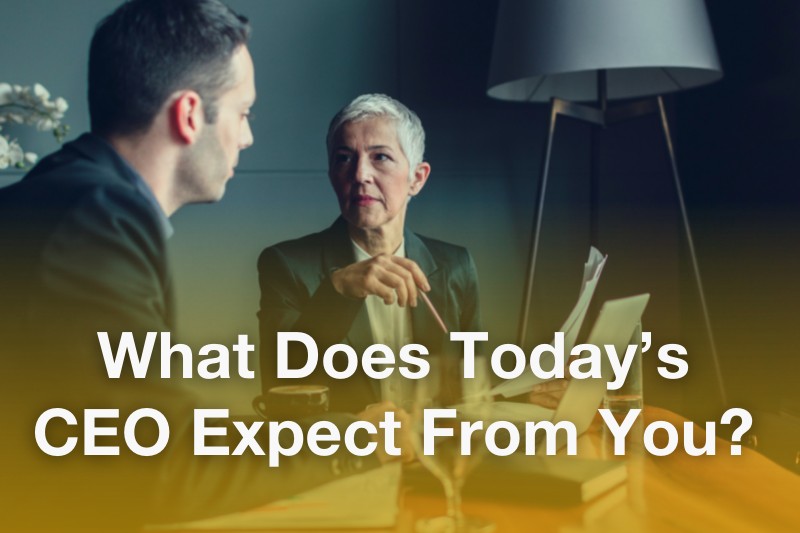Congratulations on being promoted to the senior leadership team. Now, as a high-performing Key Executive, do you know what is expected of you by the CEO? In this blog, TEC Chair Tim Redpath discusses the attributes and behaviors of high-performing executive teams and how to meet the higher expectations of today’s CEOs:
You are promoted to the senior leadership team. So, what does the CEO now expect from a high-performing Key Executive like you?
Recently, I had the opportunity to talk with some inspiring finance leaders at Invest Ottawa and shared some thoughts about today’s CEO’s expectations.
Be the Subject Matter Expert
This is a given. Whether you are the CFO, the VP of HR, or the Head of Operations, a CEO’s expectations are that you know your subject inside-out.
Offer Solutions
It’s an old truth, but high-performing Key Executives like you offer solutions. You solve problems and you pursue operational excellence. You act with integrity and manage corporate risk. By nature, you are a life-long learner.
Demonstrate Executive Presence and Communication Skills
When you speak, people stop and listen. Effective Key Executives like you have polished communication skills and the emotional intelligence to persuade, debate, listen, ask great questions, and influence others. You can communicate confidently at multiple levels inside the organization and outside, when needed, to clients, investors, partners, etc.
Play For the Team
As a Senior Executive, you hold your own at the leadership table. You know the dynamics of the team and the personality of every other player, can contribute to discussions, and know that Unity of Command is critical. You can make your argument and lose the debate, and once you leave the boardroom, it is your decision too.
Hold Yourself Accountable
You hold yourself and your team fully accountable. If you commit to getting something done, the CEO never gives it a second thought. You have earned the highest level of trust.
Understand the Business
You pay attention to PEST (Political, Economic, Social, and Technological) factors and know the competitive landscape. A VP HR does not need the technical knowledge of a CTO but needs to be broadly knowledgeable and understand the market dynamics.
Understand the CEO’s Work Style and Goals
Surprisingly, a CEO does not always know what to do! So, you need to understand the CEO’s objectives, strengths, and weaknesses and learn how to interact with them. Do they like to constructively kick ideas around, or generate passionate discussion? Do they prefer structured meetings or unstructured drop-ins? You will not succeed if you can not understand how to work well with your CEO.
Act Autonomously
You need to act autonomously and own your role. Most CEOs I work with practice a version of “I want to be informed about critical issues as soon as possible” and do not want to be hassled with minor issues and constant questions.
Build Relationships
You build internal and external relationships and demonstrate multi-directional leadership (up, down, and to your peers). Part of this is being a flag-bearer for the company and being a corporate culture and values enthusiast. Another part is being comfortable speaking truth to power and speaking up when necessary.
Do you have what it takes to be a high-performing Key Executive and exceed the expectations of today’s CEOs? For over 35 years, TEC’s proven process has helped over 25,000 Canadian executives and owners become better leaders. Explore who could be sitting at your table.



